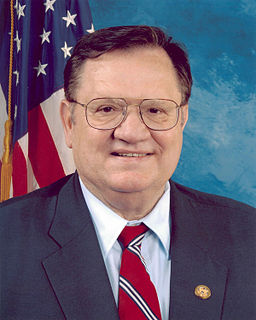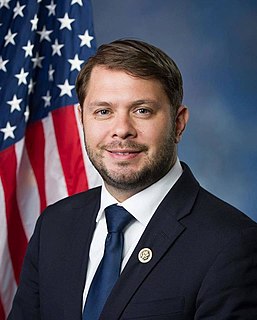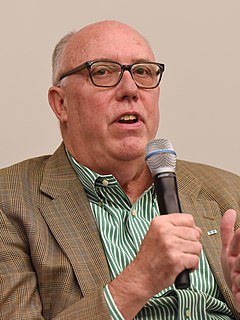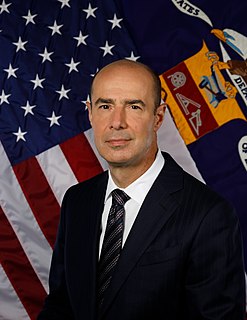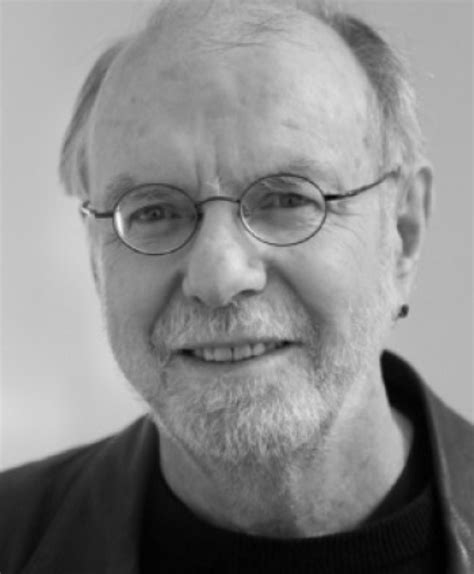Top 1200 American Foreign Policy Quotes & Sayings - Page 18
Explore popular American Foreign Policy quotes.
Last updated on November 18, 2024.
The Obama administration has turned a blind eye to radical Islam since before they came to office. If you look at everything that's transpired since the famous Cairo speech in 2009, it's all been an embrace of those who are the most radical elements in that part of the world. That is not a good sign for America's foreign policy.
Foreign policy of a pluralistic democracy like the United States should be based on bipartisanship because bipartisanship is the means and the framework for formulating policies based on moderation and on the recognition of the complexity of the human condition. That has been the tradition since the days of Truman and Vandenberg all the way until recent times.
It seems clear to me that the Obama Administration has no human rights policy. That is, while in some inchoate sense they would like respect for human rights to grow around the world, as all Americans would, they have no actual policy to achieve that goal - and they subordinate it to all their other policy goals.
Part of what makes a language 'alive' is its constant evolution. I would hate to think Britain would ever emulate France, where they actually have a learned faculty whose job it is to attempt to prevent the incursion of foreign words into the language. I love editing Harry with Arthur Levine, my American editor-the differences between 'British English' (of which there must be at least 200 versions) and 'American English' (ditto!) are a source of constant interest and amusement to me.
The United States has been fighting African pirates since the early days of the republic - battles so formative that, among other things, they established a long-standing pattern of dealing with foreign policy problems through armed interventions and also inspired the iconic phrase 'the shores of Tripoli' in the Marine Corps hymn.
We now have some years of very reliable polling by Western firms in the Islamic world, in multiple Islamic countries. And invariably, the question that asks, "Do you view U.S. foreign policy as an attack on Islam and Muslims?" is maxed out. Whether it's Jordan or Indonesia or Egypt, you get 80,85 percent of people saying "Yes."
Every Republican has a one-liner on ObamaCare. I've got detailed plans on energy independence, on school choice, on health care, on foreign policy. They all hire somebody to write their plans. They can borrow mine. I've actually got ideas. Enough with the slick talkers. Let's elect somebody that's done something.
Since populists never miss an opportunity to create a lot of noise about anti-Europe stance. However, the repercussions of the British referendum could quickly put a stop to such crass rabble-rousing, as it should soon become clear that the UK was better off inside the EU - economically, socially and in foreign policy terms.
Human rights, race relations, gender politics, health care, and foreign policy - it's a lot to keep track of, and yet all of these things affect us in our daily lives. Making sense of everything requires meticulous unpacking of feelings, delicate navigation of social norms, and a community of love to help along the way.
Our attitude toward our own culture has recently been characterized by two qualities, braggadocio and petulance. Braggadocio - empty boasting of American power, American virtue, American know-how - has dominated our foreign relations now for some decades. Here at home - within the family, so to speak - our attitude to our culture expresses a superficially different spirit, the spirit of petulance. Never before, perhaps, has a culture been so fragmented into groups, each full of its own virtue, each annoyed and irritated at the others.
Both President Kennedy and President Reagan were roundly criticized by parts of the foreign policy establishment that felt they were being weak by engaging our adversaries. So some of it is built into a political lexicon that makes you sound tougher if you don't talk to somebody, and rather, very loudly, wield a big stick.
Over the last years we've seen the consequences of the Obama-Clinton foreign policy. Leading from behind is a disaster. We have abandoned and alienated our friends and allies, and our enemies are stronger. Radical Islam is on the rise, Iran's on the verge of acquiring a nuclear weapon, China is waging cyber warfare against America.
Every country has a founding mythology. For Americans, it starts with our first president's youthful encounter with a cherry tree and refusal to tell a lie. Mr. Trump would do well to find inspiration in that story, which goes to the heart of what makes America different - and our foreign policy effective - around the world.
As regards Hillary C;inton's foreign policy actions and the powerful vested interests she seems gleefully beholden to, including all the biggest players in the military-industrial complex, I feel that she would be no better an actor on the world stage than Trump and whatever coalition of managers he might cobble together.
I think a far more important strategic way to deal with the Islamic State would be to bring some of these regional partners and explain to them that Turkey's own contradictory foreign policy has to end. I mean, if United States is serious, it has leverage over Turkey. And apparently it has not been able to move Turkey sufficiently.
I chose to write about food: food is inherently political, but it's also an essential part of people's real lives. It's where the public and private spheres connect. I wanted to show readers that the larger politics of war and economics and U.S. foreign policy are inextricably bound to the supposedly trivial details of our everyday lives.
Policy is formed by preconceptions, by long implanted biases. When information is relayed to policy-makers, they respond in terms of what is already inside their heads and consequently make policy less to fit the facts than to fit the notions and intentions formed out of the mental baggage that has accumulated in their minds since childhood.
Objectivism is basically the same thing as faith-based science or for that matter faith-based foreign policy, where you start out with the assumption "We are good, they are evil," or "We know what is good and right and we know what is wrong," so all questions are settled in advance by a set of ideological prejudices.
In 1977, when I started my first job at the Federal Reserve Board as a staff economist in the Division of International Finance, it was an article of faith in central banking that secrecy about monetary policy decisions was the best policy: Central banks, as a rule, did not discuss these decisions, let alone their future policy intentions.
The thing that strikes me, from looking at the names so far in the Donald Trump's Cabinet on the foreign policy side, is the one thing that unites them - and that's General James Mattis at the Pentagon, Mike Pompeo at the CIA, even Mitt Romney to become secretary of state - they're all very, very hawkish on Iran.



















